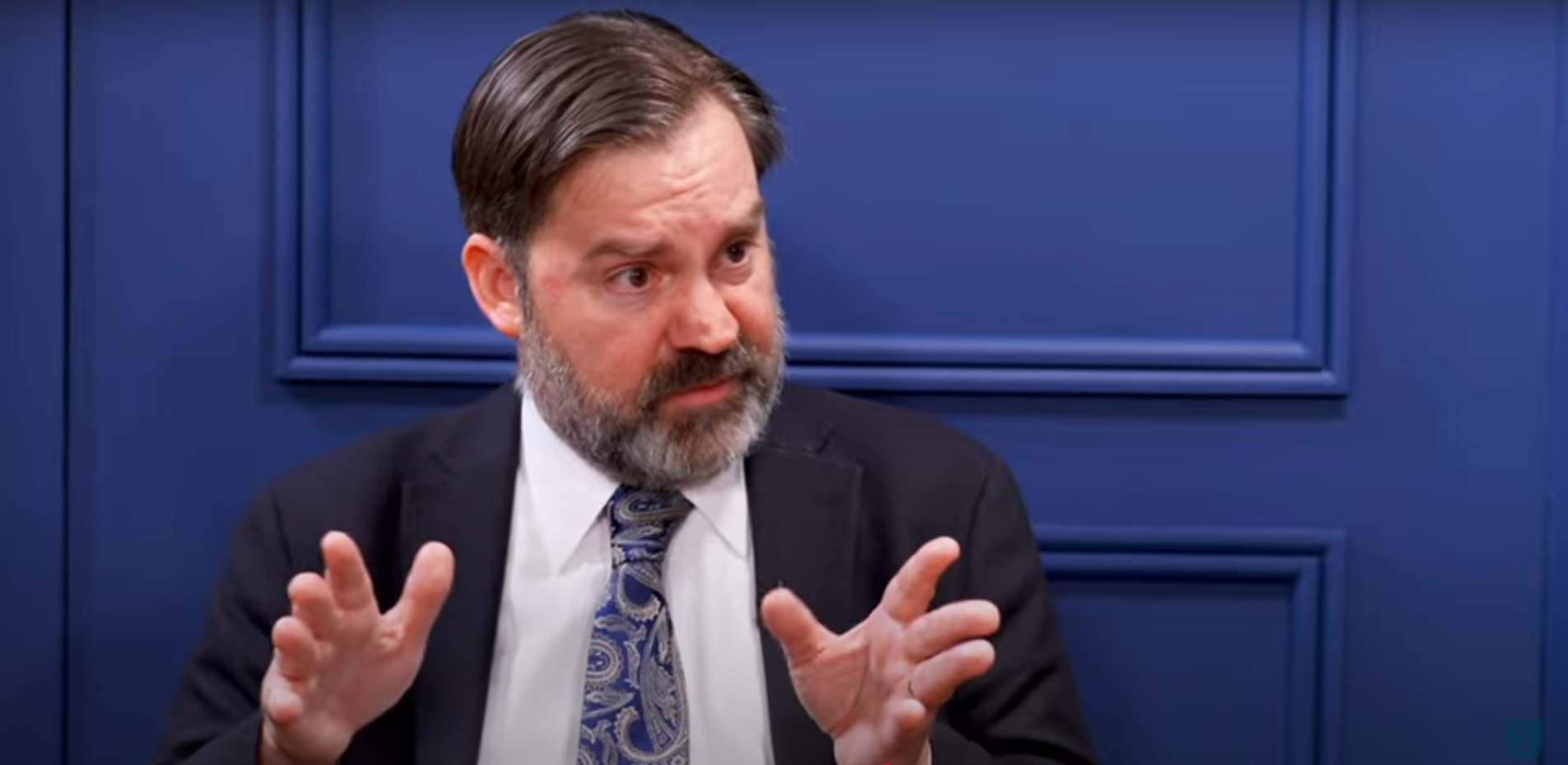Modern Age editor Daniel McCarthy sits down with historian Sean McMeekin to discuss McMeekin’s groundbreaking book, To Overthrow The World: The Rise and Fall and Rise of Communism, which won ISI’s 2025 Conservative Book of the Year Award.
In the edited excerpt below, McCarthy and McMeekin discuss the ways in which Communism and its malign influence are not yet a thing of the past.
McCarthy: You say that communism, in some ways, is just getting started, and the final chapter of the book really lays out the ways in which the COVID lockdowns and the growth of the surveillance state within the West as a whole are following precedents set by Communist China and other Communist states. Tell us a little bit about the state of Communism today and why it’s something that should still concern Americans in the twenty-first century.
McMeekin: This is the part of the book that got a bit of attention and maybe riled a few people up, in part because most of us who are reasonably well-read in history have come to see that most of the Communist regimes of the twentieth century were economic failures, oppressed their people, committed all kinds of human rights abuses and violations, obviously piled up huge death counts, and so forth. But generally speaking though, I think most people, until pretty recently, thought that we could say goodbye to all that, thank goodness that’s over. That was the tone of a lot of the early books that came out in the post–Cold War years, whether about Soviet history or about Communism—“writing its obituary,” as I think Richard Pipes put it in his Short History of Communism, which came out a quarter century ago. It really did seem like Communism was finished.
There was a trial of sorts of the Communist Party and Richard Pipes, who was both a historian at Harvard and also an advisor of the first term of the first Reagan administration with a role in forming policy vis à vis Poland and the Solidarity movement, was actually called as an expert witness in that trial. I talk about it in the book because I think it was an important moment but not necessarily for the reasons people thought at the time. People thought it might be something of a Nuremberg for Communism, but that was a bit of a misconception. In fact, what had happened was that Yeltsin, after he came to power as president, tried to outlaw the Communist Party in Russia, and he was sued by the Communist Party. The part that most people don’t realize is that the Communist Party won—and they didn’t just win renewed legal status, their capacity to contest and fight elections, and become the largest or second largest party in Russia, which is to this day, of course, very influential. To some extent they also won back a little of their diminished luster and prestige. So I think that’s the first part of it: the story didn’t quite end as neatly as we maybe thought it did in either 1989 with the fall of the Berlin Wall or in 1991 with the collapse of the Soviet Union.
The other way in which I’m talking about Communism is as something that hasn’t quite vanished and maybe hasn’t finished with us yet—I suppose I might be channeling the Trotsky line, “you may not be interested in war, but war is interested in you,” and you might say the same thing about Communism. I suppose what I’m getting at is that a lot of, to borrow a term from Marx, the “superstructure” of Communism—the central planning of the economy, the full state control and ownership of the means of production—has been jettisoned at least by the more clever, ambitious, and successful Communist regimes, for example in China, where there is a kind of hybrid system. But the part they haven’t abandoned in China, the part that concerns me because it is creeping into a lot of Western social political life particularly over the past decade or so, are the subtler forms of social control, for example a social credit system. It’s subtler now. In the Communist days of the Soviet Union or in Eastern Bloc countries or in China, you obviously had a very rigid party structure: party membership was necessary to get ahead, you had to be on good terms with the party or formal party members, etc. They had a social credit system but it was more explicit, blunt, and in your face. Now, we have varieties of censorship and social control, varieties of not always repression exactly but certainly of surveillance and monitoring and the constant hectoring and surveilling of the population that you saw in Communist regimes is a bit subtler now. But in some ways I think it’s more insidious in many Western countries because we’ve become more accustomed to it. COVID was only the most obvious manifestation of it.
You can watch the full video here:














